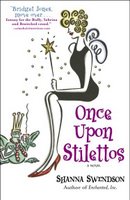STATUS: Yuck. I hate when a Wednesday feels like a Monday. Always a pile of stuff to do when I’ve been frolicking for 4 days instead of working. Also, I have to be somewhere at 6 p.m. and I didn’t get a chance to proofread. Sorry for typos etc.
What song is playing on the iPod right now? IF I EVER LOSE MY FAITH by Sting
Talking about advances is a loaded topic. I know all of you out in blogworld are screaming, “show me the money” but honestly, advance monies really vary depending on the type of project, whether it’s fiction or nonfiction, whether it’s romance, SF &F, or literary.
There’s just no unifying number range that I can give to y’all and say, “expect that much for your advance.”
So much of what is offered depends on how hot the project is and how many publishers are interested.
I’ve sold a debut YA title for a solid six figures and I’ve sold debut YA titles for the more standard advance (which is more likely to be between 10-25k).
All were from great writers. What made one worth lots of zeros and what made the others worth regular zeros?
Yep. No easy way to answer that question. It all depends on how hot the project.
There’s no hard, fast rule on what to expect for your advance when a publisher offers and an agent isn’t involved.
I’m going to give you a quick and dirty trick that will at least give you a general idea of what the editor should offer. This isn’t gospel though. Don’t be quoting back to me 6 months from now saying, “you said if I followed the silly thingie formula, I should expect to get offered XYZ.”
Advance monies depend on a lot of factors.
And I would strongly recommend that you start hanging out at publishersmarketplace.com and reading the deals on a regular basis. The site doesn’t post actual advance totals but will give you a general idea of the advance range.
Also, RWA is amazing about educating its members. So does SFWA and Sisters in Crime and places like Lighthouse Writers—who devote themselves to educating writers. If your project fits, join.
But I promised you a quick and dirty method. Here goes.
After the editor calls and has emailed you the deal points, you might ask for a bit more information. Ask for the format (as in, will it be hardcover, original trade paperback, or original mass market). Ask for the price point and ask for the estimated initial print run.
The editor had to run a P&L (profit and loss) statement and if you haven’t checked out Anne, the editor at TOR’s blog, do so right now. She actually has two blog posts where she literally breaks down how an editor does the P&L and decides what to offer for the project.
But back to a quick and dirty method.
Let’s say the project sold is a romance novel (because publishers offer all the time to unagented romance authors). It will be an original mass market (which tends to be standard). The price point will be $6.99 with an initial print run of 30,000 copies.
Royalty percentage is usually 8%.
Quick and Dirty Method (and yes, you must do a little math to get this)
What we are approximating here is how many copies do you need to sell to earn out your advance? When you get that number, you’ll probably have a really good idea what the editor will offer when she calls.
So, $6.99 x 30,000 copies is $209,700.00. 8% of that is $16,776.00.
Wait. They aren’t going to offer that.
Why? Because booksellers have discounts—and those can be anywhere from 20% to 6)%. You might even ask the editor what the average discount is.
Also, chances are good that the publisher might initially print 30,000 copies but most debut authors, on average, will sell-through anywhere between 50 to 90% of those 30,000 copies.
I know I said this was the quick and dirty method but hang in there with me.
Let’s pick 30% as the average discount. Let’s assume you are going to sell-through well or the publisher is optimistic and use 70% sell-through.
More than likely, your book will have a cover price of $6.99 (and yes your royalties should be based off of the cover price but that’s for a future blog—I’m just trying to get you to see what might be offered as the advance and hence this silly formula thingie).
At a 30% discount (which publishers are going to figure in on their P&L statements in a much more complicated formula than this), the book will be selling at around $4.99 (just to round up a little). With a 70% sell-through of around 21,000 copies…
Now you have $4.99 x 21,000 copies is $104,790.00. 8% of that is $8383.20.
Aha. The offer should be between $8 and 16k/ per book. (But if the project is a super sexy paranormal vampire romance and that’s selling like hot cakes, well, you should push for more. Knowing the market is part of this game as well.)
Of course, without an agent, they’ll probably low-ball you at first. Not to mention, some NYC publishers won’t offer this kind of money regardless of what the quick and dirty formula says (and if you join RWA, the members will tell you which publishers won’t offer above 5k no matter what).
Value of those organizations.
Like I said. This is just an approximation game you can play. I repeat. This isn’t gospel. This isn’t the truth. It’s just to give a ball park idea.




